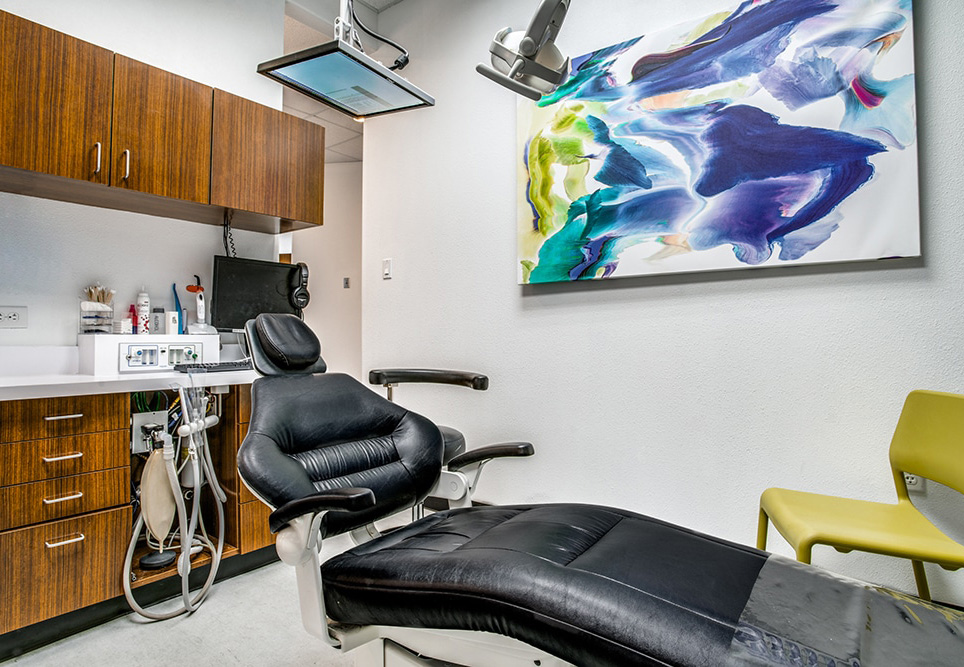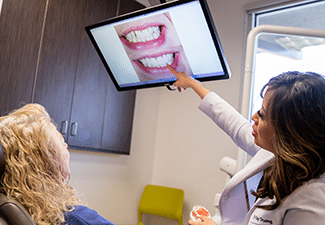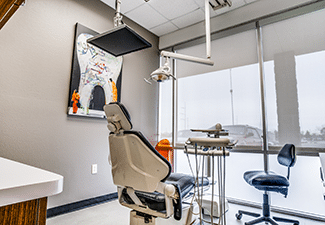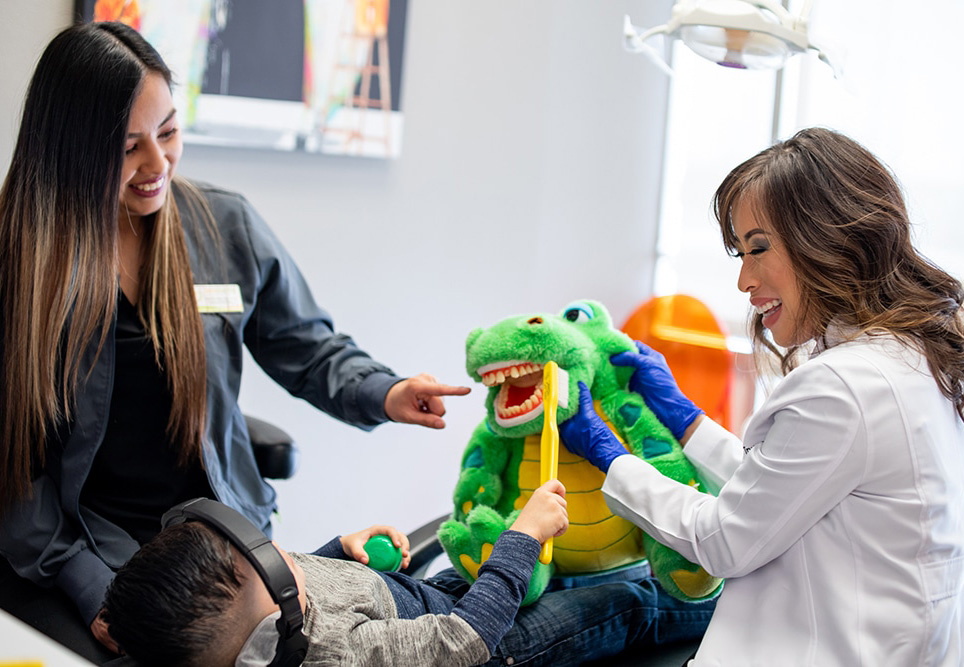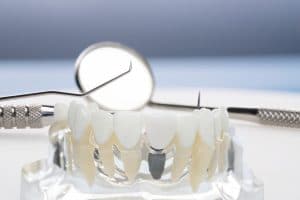
No one feels good about missing teeth. Tooth loss may cause poor oral heath and could have negative impacts on your social life. In order to help people in Dallas and Richardson, TX, enjoy a full smile that allows you to eat comfortably, speak without difficulty, and smile with pride, we may suggest dental implants or implant-secured dental prosthetics. But how long does a dental implant last? What should our patients expect from the implant process? Find out how we help our patients enjoy full smiles, preventing missing teeth and offering strong and lifelike replacement options for minor and severe tooth loss!
Implant Dentistry
A dental implant is made of two main parts, the screw-like implant and the restoration. The implant portion is created from titanium, a biocompatible material. This portion is inserted into the jawbone, where it bonds with the tissue through a process known as osseointegration. After the area heals, we attach an abutment that will hold the restoration portion in place. For a single missing tooth, the restoration will be a custom-made dental crown, which we create from ceramic or other materials designed to absorb bite forces and offer a lifelike appearance.
Stimulating Jawbone Tissue
But how does a dental implant last so much longer than a traditional bridge or denture? While bridges tend to last about 10 to 15 years, and dentures tap out after 5 to 10 years, implant-secured replacement teeth have been known to last decades, possibly even a lifetime. This is because they stimulate the growth of jawbone tissue. You see, when we lose a tooth, the body takes notice and stops sending doses of calcium and phosphorus to the jawbone around the missing tooth. Without these nutrients, the bone tissue weakens and deteriorates, leading to additional lost teeth and over time, an aged appearance. Since the jaw ridge changes shape, this means bridges and dentures must be replaced periodically to ensure a proper fit. However, since these new teeth stimulate the growth of tissue and prevent changes to the jawbone tissue, this means they can stay in place for many years and also prevent further tooth loss. We plan the placement process, choosing the right area and angle, using advanced technology, which helps ensure proper jawbone stimulation, as well as a durable and dependable replacement tooth, one that helps you eat your favorite foods again and also provides a lifelike appearance!
Ensuring They Last for Years
Now, just because they don’t cause jawbone tissue to break down doesn’t mean they automatically last forever. Like natural teeth, they need routine care to stray strong. The most common cause of lost teeth in adults is periodontitis, the advanced stage of gum disease. Since the disease attacks the connective tissues between the teeth and gums, this means periodontitis could also cause your new teeth to fail. Maintaining optimal oral health and managing the disease if you already have it is essential for keeping your smile whole. For those without the disease, be sure you brush and floss daily. You should start your day by brushing your teeth for two minutes, using a toothpaste that contains fluoride. You should the do the same at night. We also urge people to floss before bed, running the floss up and down the sides of each tooth and dipping briefly below the gum line, removing the food particles that could promote plaque buildup, gum inflammation, and other serious oral health concerns. Other tips for maintaining your smile include avoiding tobacco products, which can increase the risk of periodontitis, and seeing us for routine cleanings every six months to remove plaque and protect gum tissue from inflammation. We can monitor your natural teeth, assess the stability of your new ones, and also remove the buildup that often irritates and inflames gum tissue.
If you already have the disease, again routine homecare is essential for safeguarding your smile. You also need to see us for more frequent cleanings, such as every three to four months. These visits remove plaque and allow us to control the disease, preventing periodontitis and keeping you new teeth and natural ones firmly in place. If you haven’t seen the dentist in a while, and notice your gums feel sore, look red, or bleed easily, then this could point to the early stages of gum disease. See us right away for a scaling and root planing, and to discuss steps to manage the disease and protect the health and stability of your smile!
What If I Have Lost Multiple Teeth?
We’ve discussed replacing a single tooth, but what if you have lost several in a row, or a vast majority of them? For minor tooth loss, we can secure a bridge with implant dentistry, replacing several teeth in a row with a long-lasting prosthetic. For those with more substantial tooth loss, we can discuss implant-secured dentures, which involve using between six and eight dental implants per arch to attach a full or partial denture, protecting the jawbone tissue from degradation and offering a secure and fixed prosthetic. You can eat and speak without fear of slippage and enjoy optimal oral health for years to come. If you have any questions about addressing tooth loss, or about helping your new teeth last for decades, then contact our team today. We can schedule a consultation to see if dental implants are your best choice for addressing your lost teeth, starting you on the path to a whole and beautiful smile. Don’t let missing teeth dictate your oral health and quality of life!
We’re Here to Treat Missing Teeth
Without treatment, lost teeth can lead to serious complications for the health of smiles both young and old. However, with implant dentistry we have a strong and long-lasting solution to tooth loss. For more information on preventing missing teeth, or to discuss our approach to implant dentistry, then please schedule a consultation by calling the Viva Dental Family Dentistry office nearest you at (214) 337-7800 (Dallas) or (972) 437-6000 (Richardson). We’re happy to serve families in the area, and help them enjoy optimal oral health and beautiful smiles.







